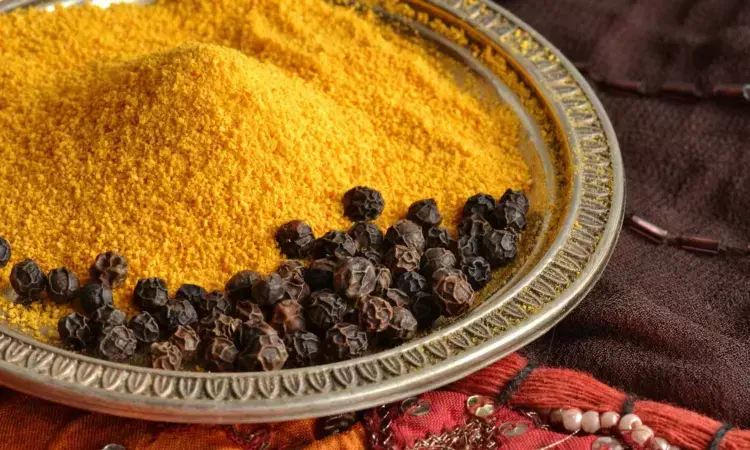- Home
- Medical news & Guidelines
- Anesthesiology
- Cardiology and CTVS
- Critical Care
- Dentistry
- Dermatology
- Diabetes and Endocrinology
- ENT
- Gastroenterology
- Medicine
- Nephrology
- Neurology
- Obstretics-Gynaecology
- Oncology
- Ophthalmology
- Orthopaedics
- Pediatrics-Neonatology
- Psychiatry
- Pulmonology
- Radiology
- Surgery
- Urology
- Laboratory Medicine
- Diet
- Nursing
- Paramedical
- Physiotherapy
- Health news
- Fact Check
- Bone Health Fact Check
- Brain Health Fact Check
- Cancer Related Fact Check
- Child Care Fact Check
- Dental and oral health fact check
- Diabetes and metabolic health fact check
- Diet and Nutrition Fact Check
- Eye and ENT Care Fact Check
- Fitness fact check
- Gut health fact check
- Heart health fact check
- Kidney health fact check
- Medical education fact check
- Men's health fact check
- Respiratory fact check
- Skin and hair care fact check
- Vaccine and Immunization fact check
- Women's health fact check
- AYUSH
- State News
- Andaman and Nicobar Islands
- Andhra Pradesh
- Arunachal Pradesh
- Assam
- Bihar
- Chandigarh
- Chattisgarh
- Dadra and Nagar Haveli
- Daman and Diu
- Delhi
- Goa
- Gujarat
- Haryana
- Himachal Pradesh
- Jammu & Kashmir
- Jharkhand
- Karnataka
- Kerala
- Ladakh
- Lakshadweep
- Madhya Pradesh
- Maharashtra
- Manipur
- Meghalaya
- Mizoram
- Nagaland
- Odisha
- Puducherry
- Punjab
- Rajasthan
- Sikkim
- Tamil Nadu
- Telangana
- Tripura
- Uttar Pradesh
- Uttrakhand
- West Bengal
- Medical Education
- Industry
Supplementation of curcumin-piperine may benefit patients with ischemic stroke in rehabilitation stage

Iran: A randomized controlled trial published in Nutrition Journal has shown the beneficial effects of curcumin-piperine supplementation on inflammatory, oxidative stress and metabolic indices in patients with ischemic stroke in the rehabilitation phase.
"Supplementation with curcumin-piperine led to significantly reduced serum levels of total cholesterol, inflammatory markers, weight, waist circumference, triglyceride, and systolic and diastolic blood pressure (BP) in post-stroke patients," the researchers reported. "The supplementation did not lead to changes in quality-of-life indicators in post-stroke."
Stroke is a foremost cause of death worldwide and is a major reason for mental and physical disabilities in societies posing significant economic and social burdens.
Curcumin possesses many pharmacological activities that are relevant to stroke treatment. Preclinical studies have shown the protective effects of curcumin against stroke due to the antioxidant, anti-inflammatory, and anti-ischemic properties of the molecule. Despite its high therapeutic potential, its use is limited for medical purposes due to its low bioavailability, low aqueous solubility, and rapid degradation.
Co-administration of curcumin with piperine has been introduced as an alternative to improve its pharmacokinetic features. Piperine is a naturally occurring alkaloid from pepper that has been shown to increase the bioavailability of curcumin and reduce its glucuronidation. Considering this, Mohammad Bagherniya, Isfahan University of Medical Sciences, Isfahan, Iran, and colleagues aimed to investigate the effects of supplementation with curcumin-piperine combination in patients with ischemic stroke in the rehabilitation stage by conducting a randomized controlled trial.
The study included 66 patients with stroke; they were randomized into two groups receiving curcumin-piperine tablets (500 mg curcumin + 5 mg piperine) and matched placebo tablets for 12 weeks. Carotid intima-media thickness (CIMT), high-sensitivity C-reactive protein (hs-CRP), total antioxidant capacity (TAC), thrombosis, lipid profile, blood pressure, anthropometric indices, and quality of life were evaluated before and after the intervention.
The following inferences were made based on the study:
· 56 patients with a mean age of 59.80 ± 4.25 years completed the trial.
· Based on the ANCOVA test, adjusted for baseline values, curcumin-piperine supplementation for 12 weeks resulted in significant reductions in serum levels of triglycerides (TG), hs-CRP, total cholesterol (TC), CIMT, weight, waist circumference, and systolic and diastolic blood pressure, and a significant increase in TAC in comparison to the placebo.
· Pain score significantly increased in both groups; however, its increase was significantly higher in the placebo group compared with the intervention group.
· No significant changes were observed between the two groups in terms of serum fibrinogen, low-density lipoprotein (LDL), high-density lipoprotein (HDL), and quality of life indices.
"Results of the current study suggest that curcumin-piperine co-supplementation has beneficial effects on CIMT, systolic and diastolic BP, as well as serum levels of hs-CRP, TG, TC, and TAC," the researchers wrote. "No significant changes were observed between the two groups in terms of serum fibrinogen, HDL, LDL, and most of the quality-of-life indicators."
"There is a need for more well-designed and long-term randomized controlled trials to confirm the present results," they concluded.
Reference:
Boshagh, K., Khorvash, F., Sahebkar, A. et al. The effects of curcumin-piperine supplementation on inflammatory, oxidative stress and metabolic indices in patients with ischemic stroke in the rehabilitation phase: a randomized controlled trial. Nutr J 22, 69 (2023). https://doi.org/10.1186/s12937-023-00905-1
Dr Kamal Kant Kohli-MBBS, DTCD- a chest specialist with more than 30 years of practice and a flair for writing clinical articles, Dr Kamal Kant Kohli joined Medical Dialogues as a Chief Editor of Medical News. Besides writing articles, as an editor, he proofreads and verifies all the medical content published on Medical Dialogues including those coming from journals, studies,medical conferences,guidelines etc. Email: drkohli@medicaldialogues.in. Contact no. 011-43720751


